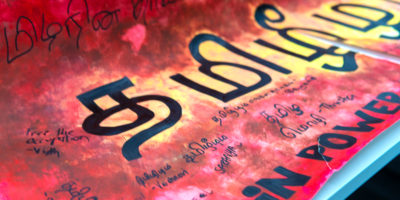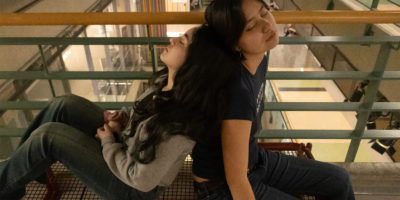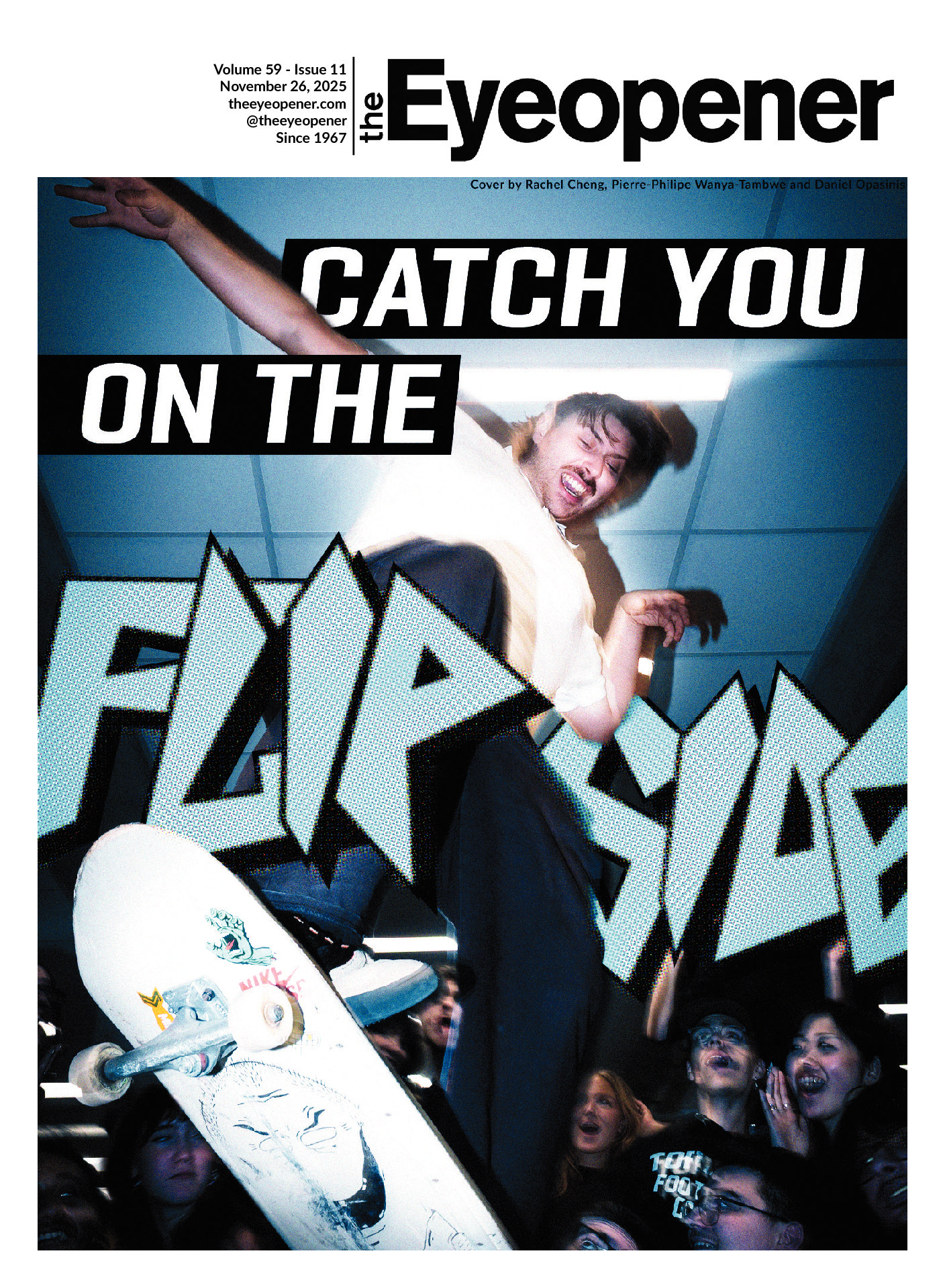By Victoria Merianos
After spending a long eleven years in a small town called Brockville, which has a population of 35,000 people, my eyes were open to the overwhelming acceptance and diversity of the big city. Yes, rolling in corn fields and the only movie theater may bring peace to some folk, especially the white retirees my town is known for. However, as a member of the LGBTQ+ community, and an adopted Chinese somewhat butch female, for me, it was suffocating
The LGBTQ+ community is as popular in small towns as a suit and tie in Brockville’s many family-owned restaurants. I have been asked by people if I am male or female when entering public washrooms—both in and out of my hometown. Even though I am not transgender, I still felt the disrespect and anxiety.
As my family and I were taking a lunch break on a day trip to a neighbouring town. I got up from my seat and found a new seat in the women’s restroom. As I sat in the small stall I heard an elderly woman ask me to affirm my gender because she, “don’t want no peeping Toms.” At the time I had been told I resembled a 13-year-old boy, with my short hair and masculine attire. I suppose she was worried I was a male, trying to get a good look at her body in the bathroom of that town’s eatery. A town of which has a population of about 6,000 people.
After speaking to others like me, I’ve learned that being LGBTQ+ in a small town for too long can feel lonely, scared and make you hide who you are.
Imagine living in a religious town where homophobic slurs are more popular than a Toronto drag event. Raven Eve Cannon, a queer-identifying first-year psychology student at Ryerson, remembered receiving threats from a classmate in high school after she put up a pride flag in their school. The classmate went on to tell her how homosexuality is a “mental illness.”
Imagine living in a religious town where homophobic slurs are more popular than a Toronto drag event
“[None of the] staff members of our school did anything to combat it,” Cannon said. This is one example of how the silence and serenity of a small town can be smothering for members of the LGBTQ+ community.
Now, in the busy bustle of a large concrete block of Toronto, she cringes with feelings of comfort in this accepting city.
One of my former classmates had a similar story to Cannon. She moved from the tranquil town of Chesterville, with a population of fewer than 2,000 people, to Brockville.
As a high school student who identified as a lesbian, she never felt as open about it as the closet door. A small town like Brockville can make minorities feel like a rainbow sheep in a herd of white sheep. “I’ve had students call [me] a dyke while driving by, and have had food thrown at me,” she explained.
She was known for being the only openly queer female in her school. She recalls being talked about around town for holding her girlfriend’s hand, and how relieved she felt when all that attention would be lost in the big city.
Rob Molloy, a coordinator of the Ryerson Trans Collective, said in his hometown it felt like LGBTQ+ identities didn’t exist at all. “Small towns are definitely more and more dangerous for marginalized folks,” he explained. “Speaking from a white transmasculine perspective, it’s way worse for a lot of other folks.”
Molloy describes having to be the educator of LGBTQ+ information and issues in his small town. “My doctor in my town had never heard of the word trans before,” he said. Toronto allows people to be “casually queer;” they don’t need to be advocates for their identity. He now makes a living educating others, but that is by choice, not by default. Being ignorant on the subject can leave members of the LGBTQ+ worrying about the backlash they may face coming out. This was the case for first-year journalism student Devon Harvey
Harvey, said she struggled with maintaining emotional well-being in her small town. “[I was] afraid of being thrown out of everything,” she said. Fortunately, coming to Toronto for post-secondary schooling has relieved her of her anxieties.
Now in Toronto, she feels comfortable, instead of angst, when she holds her girlfriend’s hand. “I feel like people are actually accepting,” she explained, “Even if they are not accepting they are like, ‘OK do your thing.’
“I’ve never been so confident, like having a rainbow flag in my room or a rainbow pin on my bag. I’m not afraid if someone asks me,” Harvey said.
Not everyone has the same small-town experience—especially folks from the LGBTQ+ community. Some are greeted with food thrown at them, or stares and slurs, or the lack of awareness. I hope that one day others will feel as confident and normal as people here in downtown Toronto do.
“I’ve never been so confident, like having a rainbow flag in my room or a rainbow pin on my bag. I’m not afraid if someone asks me”
When I exit the subway to Dundas Square, I always get a smile on my face from the tall buildings, lit streets and diverse crowd. Some people say Toronto is too big, they become a number and get lost in the crowd. After spending 11 years as a minority and hearing similar stories of discomfort and prejudice, I feel a rush of comfort in blending in. I have less anxiety when I know I’m not remembered for the way I look, dress and who I am with. Here at Ryerson, in Downtown Toronto, I will gladly disappear.












Leave a Reply